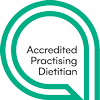What does “reject the diet mentality” mean?
Welcome to the first post in a ten-part series on Intuitive Eating!
Are you curious about what Intuitive Eating is or wondering how you can make peace with your body and food and leave the food worry, dieting and guilt behind? Then this series is for you! Intuitive Eating has ten principles – you will find a brief overview of what Intuitive Eating actually is here.
The first principle of Intuitive Eating is to reject, or ditch, the diet mentality. If you’re new to the concept of Intuitive Eating, you might be wondering what “Reject the diet mentality” actually means. I get it. When you first come across the concepts of Intuitive Eating, it can seem like a completely different language. That’s because it is essentially. It’s a completely different approach to food, eating & moving your body – one that is rooted in trusting and respecting your body (and not based on external food rules, meal plans, counting calories or restricting carbs).
If the idea of ditching dieting sounds very strange to you that’s OK! We live in a culture that continuously bombards us with messages about losing weight or “watching” our weight. But dig a little deeper into the science, and you’ll find that dieting does enormous harm and is not successful long-term for most people.
This post is explores what diet mentality means, how it might be showing up in your life, why it’s harmful and finally, what steps you can take to break free from this pattern of thinking.
What is the diet mentality?
Before we can answer the question “what is diet mentality?”, it’s helpful to first consider what is meant by diet culture. Christy Harrison, MPH, RD and author defines diet culture as “a system of beliefs that:
- Worships thinness and equates it to health and moral virtue, which means you can spend your whole life thinking you’re irreparably broken just because you don’t look like the impossibly thin “ideal.”
- Promotes weight loss as a means of attaining higher status, which means you feel compelled to spend a massive amount of time, energy, and money trying to shrink your body, even though the research is very clear that almost no one can sustain intentional weight loss for more than a few years.
- Demonizes certain ways of eating while elevating others, which means you’re forced to be hyper-vigilant about your eating, ashamed of making certain food choices, and distracted from your pleasure, your purpose, and your power.
- Oppresses people who don’t match up with its supposed picture of “health,” which disproportionately harms women, femmes, trans folks, people in larger bodies, people of color, and people with disabilities, damaging both their mental and physical health.”
Diet culture is so deeply embedded in our society, that even though we might not necessarily consider ourselves to be on a diet, we all have thoughts, beliefs and behaviours that have been strongly influenced by it. It shows up as:
- News and magazine headlines boasting about ways to “lose weight”.
- Influencers posting before and after weight loss photos.
- Messages about calorie counting or fad diets like keto or intermittent fasting on Instagram.
- Office diet chatter.
- Messages around weight and bodies you receive from doctors, other health professionals and family members.
- Body shaming and unsolicited advice to lose weight.
- And much, much more.
Diet mentality is how we individually absorb the messages of diet culture that are all around us and how we apply them to our bodies (and those of others), to our own thoughts around food, weight and to our behaviours. It’s also the thoughts, beliefs and perceptions that we retain after past dieting attempts. (Remember, a diet -in colloquial terms – is essentially any set of rules defining what, when and how much you should eat, with the goal of weight loss – even if it’s marketed as a “lifestyle” change or “wellness” program).
What does the diet mentality look like?
The diet mentality can show up in different ways for different people. It can look like:
- Categorising foods as ‘good’ and ‘bad’ and internalising the idea that you are ‘good’ or ‘bad’ because you ate a certain food.
- Believing you have no willpower if you eat past comfortable fullness.
- Believing that food cravings need to be curbed, conquered or ignored.
- Feeling guilty after eating.
- Feeling anxious, overwhelmed or worried when it comes to deciding what, when & how much to eat.
- Believing you need to follow external rules of what, when and how much to eat.
- Exercising to burn calories or compensate for food you have eaten or to “earn” a food in anticipation of eating it.
- Counting, measuring or tracking your food and/or exercise.
- Exercising even when you feel tired, because if you don’t you feel anxious or guilty.
- Exercising even when you are feeling unwell or have an injury, because if you don’t you feel anxious or guilty.
- Avoiding social situations because you don’t trust yourself around the food that will be available or because you worry there won’t be food available that fits your current eating plan.
- Allowing the number on the scales to dictate your day (good or bad).
- Feeling that your worth as a person is based on your weight and appearance.
- Passing judgement on and criticising other people’s bodies or what they are or aren’t eating.
- Generally, spending a significant part of your day thinking about food, eating, exercising and your body.
- And more.
Why is the diet mentality harmful?
Having read through the list above, you may have already started to get a sense of why the diet mentality can be harmful. We can summarise the harm that it does in this way:
Perpetuates feelings of guilt and shame
Diet mentality attaches morality to food. Categorising foods as ‘good’ and ‘bad’ leads to internalising the idea that you are ‘good’ or ‘bad’ because you ate a certain food. When you eat a “bad” food, extreme guilt and self-judgement follow. Over time, this can lead to chronic feelings of shame, self-doubt and low self-esteem.
Increases food worry, stress and anxiety
Counting calories, macros, points, obsessively reading food labels and tracking steps and/or calories “burned” when you exercise leads to worry, stress and anxiety around food, eating and exercise.
Perpetuates negative patterns of thinking
The diet mentality promotes negative thinking patterns like “all or nothing thinking” (e.g. “my whole day is spoiled because I’ve eaten something “sugary”), catastrophic and pessimistic thinking (e.g. “If I don’t lose weight, I will never find love”), labelling (e.g. “I’m disgusting because I can’t stop eating biscuits”) just to name three.
Disrupts mind and body connection
Diet mentality thoughts/rules/beliefs disrupt your ability to listen to, respond to and trust the physical sensations that your body sends you and therefore interferes with the ability to eat intuitively, cultivate self-care behaviours and manage your emotions with kindness.
Limits food variety
Since diet mentality restricts your food choices, food variety is limited and your food intake can be inadequate.
Affects other health promoting behaviours
The science tells us that eating together benefits our physical and emotional well-being (see my blog Sharing-meals-it’s not just about what we eat). Diet mentality leads to eating and exercise behaviours that can lead to less social contact and even social withdrawal.
Increases risk for eating disorders
Dieting is a risk factor for eating disorders.
What is “reject the diet mentality”
When you prioritise dieting messages, it prevents you from tuning into and trusting the messages your body is sending you. This is why “Reject the diet mentality” is the first principle of Intuitive Eating and why becoming an intuitive eater is not possible while you are dieting.
“Reject the diet mentality” is about ditching the things that keep us tied to dieting, that prevent us from making food choices based on our body’s cues for hunger and fullness, our food preferences, satisfaction, budget and more. This is what makes this step fundamental to becoming an intuitive eater again (I say again because we are actually all born intuitive eaters!).
How to start ditching the diet mentality
So how do you ditch the diet mentality? Here are some ideas to get you started:
1. Consider how diet mentality is showing up in your life and the harm it has done you (and others).
In order to fully reject the diet mentality, it’s important to recognise and accept the damage that dieting has done to your body and mind. That can be really tough, especially if you’ve been dieting for a long time. It’s hard realising you’ve invested time, money and energy in something that hasn’t been helpful long-term and something that has done you harm. Start by asking what dieting has cost you – not just in financial terms but also in terms of your social life, relationships, eating behaviour, mood, time, food preoccupation. And, if this is bringing up feelings for you, please know that it is not your fault. None of us are immune to diet culture.
2. Ditch your dieting tools.
Throw away the tools of dieting –the bathroom scales, meal plans, diet books, tracking Apps etc. All of these things will prevent you from tuning into your body’s cues (hunger, fullness, emotional, energy levels etc.). The number on the bathroom scale for example, can really affect your mood and the way you eat. Whether it’s “up” or “down”, the number on the scale can trigger eating past comfortable fullness. When the number is “down” it can lead to “celebratory” eating, and when it’s “up”, it can lead to comfort eating as a way of coping with feelings of guilt and shame. And when there is no change, you’re left thinking “why didn’t I lose weight?”.
You may find doing (some of) these things challenging, especially if you’ve been dieting or restricting food for many years. Dieting tools like the bathroom scales or your food and fitness trackers, for example, often feel like a safety net, so it can feel like a very scary step to ditch these.
If you don’t feel ready to do this, try putting these things away out of sight or write down a list of your dieting tools and start by throwing out each tool one by one over a time period that feels comfortable for you.
3. Curate a social media feed or email inbox that uplifts you
Unfollow social media accounts that promote dieting and food restriction and make you feel bad. Try replacing these with accounts of dietitians, therapists, personal trainers and others who are affirming of all bodies and promote the message that all foods have a place at the table. And/or with other accounts that may be of interest like ones that cover your hobbies.
4. Offer yourself some self-compassion
Self-compassion is key to ditching the diet mentality and to becoming an intuitive eater. Remember you’ve been inundated with diet culture’s harmful messaging for years, possibly decades! At first it can be really disorientating to learn that what you’ve heard about food, weight and health may actually be harming your mental and physical well-being. Unlearning this mindset, challenging old thoughts and replacing them with new ones takes time, patience, practice and whole lot of self-compassion.
5. Set boundaries
For women especially, dieting can be a way of bonding with other women. Talking about dieting is a common bonding ritual with friends and family who are also dieting. Setting boundaries around diet talk or excusing yourself from such conversations is important.
6. Consider seeking support
Many people find they need additional support in their journey to becoming an intuitive eater. If you feel you need more support, consider these tips:
- Learn from credible sources like Evelyn Tribole, Elyse Resch and Christy Harrison
- Check the people you’re learning from are Certified Intuitive Eating Counsellors.
- Seek additional support from a dietitian trained in Intuitive Eating counselling.
Giving up the diet mentality is not (just) about stopping keto, intermittent fasting or any other diet, it’s about ditching a state of mind!
Ready to take the next step? Contact me and request a complimentary call to find out more about Intuitive Eating and how it can help you truly nourish yourself – body, mind and soul.






